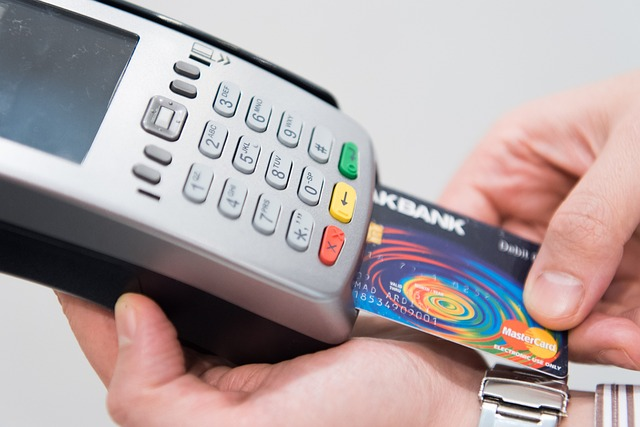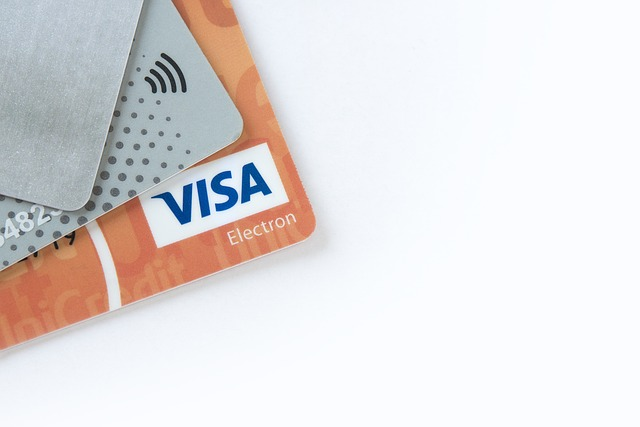What are Debit Card Transactions?
As a small business merchant, you’re likely already aware that debit card transactions have become crucial to conducting business. This type of transaction allows customers to use a bank card that looks like a credit card but essentially acts like paying in cash.
Initiating a debit card transaction involves transferring funds from the customer’s bank account to your merchant account. It combines the convenience of a credit card but only uses money already available in the bank. The customer doesn’t accumulate debt or have to worry about accruing interest.
There are two main types of debit card transactions.
PIN Debit
PIN debit card transactions involve the cardholder entering a personal identification number (PIN) to authenticate the purchase. This adds an extra layer of security to the transaction, making it less vulnerable to fraud than signature-based transactions.
PIN debit card transactions are commonly used at ATMs and point-of-sale terminals. These are sometimes called online debit transactions because the payment is processed through the debit card network instead of the credit card network.
Signature Debit
Signature debit card transactions involve processing the transaction as a credit card transaction. It usually requires the cardholder to sign a receipt to authorize the purchase.
This type of transaction is often used for larger purchases or when additional verification is needed for added protection against fraud. These are called offline debit transactions because they are processed through the credit card network (Visa or Mastercard). Despite being processed as a credit transaction, the funds still come from the customer’s bank account and are not in debt.
What types of Debit Card Transaction Fees are there?
There are three main types of debit card fees to know.
Interchange Fees
Debit card interchange fees are charges imposed on merchants by the issuing bank for the debit card. These fees are typically calculated as a percentage of the transaction amount plus a flat fee.
The cost can vary depending on factors such as the type of card used, the merchant’s industry, and the processing volume. Interchange fees can range anywhere from $0.22 + 0.05% to $0.10 + 2.30%.
Assessments
Assessments in card transactions refer to the fees charged by credit card networks like Visa or Mastercard for using their network to process transactions. While this primarily applies to credit card transactions, signature debit transactions are treated similarly to credit card transactions regarding processing and security features.
As a result, the same assessments typically associated with credit card transactions may also be applied to signature debit transactions. Assessments are typically a percentage of the transaction amount. Visa’s assessment fee for debit cards is 0.11%, and Mastercard’s is 0.125%.
Markup Fees
Markup fees in debit card transactions refer to the additional charges imposed by payment processors or financial institutions for processing transactions. These fees are typically a percentage of the transaction amount or a flat fee per transaction.
Markup fees can vary depending on the type of debit card used, the merchant’s agreement with the payment processor, and other factors. Merchants should consider these fees when setting prices for their goods or services to ensure they cover the cost of accepting debit card payments. By understanding and accounting for markup fees, merchants can make informed decisions about their debit card transactions.
Why do merchants have to Pay Debit Card Transaction Fees?
Debit card transaction fees are charges imposed on merchants for processing debit card payments. These fees cover the cost of payment processing services provided by banks and payment processors. Merchants are required to pay these fees to accept debit card payments from consumers.
Payment processing fees are essential for maintaining the infrastructure that enables seamless transactions. Consumers benefit from the convenience of using debit cards for purchases, but these services come at a cost. Merchants bear the burden of these fees, which can vary based on factors such as transaction volume, card network, and type of business.
Understanding the rationale behind debit card transaction fees is crucial for merchants to manage their operating costs effectively. Businesses can make informed decisions regarding pricing strategies and financial planning by comprehending how these fees contribute to the overall payment ecosystem.
Should my business Accept Debit Card Transactions?
Accepting debit card transactions can benefit your business by providing convenience for customers who prefer using debit cards due to their ease of use and security features. It can also help your business stay competitive in the industry.
Many consumers now expect businesses to offer customizable payment options, including debit card payments. By offering multiple payment options, you cater to a broader range of consumers and improve overall customer experience.
However, accepting debit cards involves paying processing fees typically charged as a percentage of the transaction amount or as a flat fee per transaction. These fees can vary based on factors such as the type of business, transaction volume, and the payment processor used.
When deciding whether to accept debit card transactions, consider the potential increase in sales and customer satisfaction. Weigh the benefits against the costs associated with debit card processing fees. Consider factors such as profit margins, transaction volume, and potential savings from increased efficiency in handling electronic payments.
Accepting Debit Card Transactions Pros & Cons
Pros:
- Increased convenience for customers.
- Faster payment processing compared to checks.
- Reduced risk of fraud compared to cash transactions.
- Ability to attract more customers who prefer using debit cards.
- Integration with modern payment systems and technology.
Cons:
- Transaction fees may cut into profit margins.
- Risk of chargebacks if customers dispute transactions.
- Potential for technical issues with card readers or payment processing systems.
- Need to stay compliant with data security standards like PCI DSS.
- Dependency on a reliable internet connection for processing transactions.
How can I lower Debit Card Transaction Fees?
Merchants can take several steps to lower debit card transaction fees. Here are some tips:
Negotiate with Payment Processors: Merchants should be ready to negotiate with their payment processors to secure lower transaction fees. By discussing their transaction volume and exploring different pricing options, merchants may be able to reduce their costs.
Provide a PIN Pad: PIN debit transactions typically have lower fees because they don’t use the credit card network. Ensure you have a PIN pad to allow customers to use this method. This only applies to physical checkout at brick-and-mortar stores.
Opt for Interchange-Plus Pricing: Instead of flat-rate pricing, merchants can opt for interchange-plus pricing, which separates the interchange fees set by card networks from the processor’s markup. This transparency can help merchants understand and potentially lower their overall costs.
Implement Fraud Prevention Measures: By implementing robust fraud prevention measures, merchants can reduce chargebacks and fraudulent transactions, lowering their debit card transaction fees. This can include using address verification services, CVV verification, and monitoring transactions for suspicious activity.
Encourage Cash and ACH Payments: Merchants can also encourage customers to use alternative payment methods like cash or ACH transfers, which typically have lower transaction fees than debit cards. Offering discounts or incentives for non-card payments can help steer customers toward these options. In addition, you can charge customers a small fee for using a debit card. However, most customers won’t like this, so only consider it as a last resort.
Avoid Tiered-Pricing Models: Some payment processors offer tiered pricing, which changes the amount you’re charged based on sales volume. This can lead to higher rates.
Review Processing Statements Regularly: Merchants must regularly review their processing statements to identify hidden fees or unnecessary charges. By staying informed about their transaction costs, merchants can take proactive steps to effectively lower their debit card transaction fees.
Frequently Asked Questions
Here are the most common questions about debit card processing fees.
What’s the difference between Regulated vs Unregulated Debit Cards?
The 2011 Durbin Amendment set a cap on debit card transactions. Here are the rules to know.
Regulated Debit Cards
If the issuing bank for the debit card holds assets totaling $10 billion or more, then their transaction fees cannot exceed 0.05% + $0.21. These are known as regulated debit cards.
Unregulated Debit Cards
Banks with less than $10 billion in assets are not subject to the same debit card transaction fee limits. These are called unregulated debit cards. As a result, unregulated debit card transaction fees are variable and can significantly exceed regulated debit cards.
How do Debit Card and Credit Card Transaction Fees differ?
Transaction fees for credit cards and debit cards differ in several ways. Credit card transaction fees are typically higher than debit card transaction fees. This is because credit card payments involve the card issuer extending credit, which carries a higher risk than debit card transactions that draw funds directly from the cardholder’s bank account.
Credit card transaction fees may include additional charges such as interest on outstanding balances, annual fees, and foreign transaction fees. On the other hand, debit card transaction fees are usually lower and more straightforward, often limited to flat fees or a small percentage of the transaction amount.
Are Debit Card or Credit Card Transaction fees more expensive?
Debit card processing fees are typically lower than credit card fees for merchants. Most small business owners prefer debit cards due to their lower costs and faster payment processing times. Unlike credit cards, debit cards deduct funds directly from the customer’s bank account.
Credit card transaction fees are generally higher because they involve credit card companies extending a line of credit. This added risk for the bank results in higher fees to cover potential losses. Merchants often pay a percentage of each credit card transaction as a fee.
What are the best payment processors for Accepting Debit Cards?
When selecting a payment processor for accepting debit cards, it’s crucial to consider factors like pricing, compatibility with your business needs, and security features. By weighing these aspects carefully, you can choose the best option that aligns with your requirements.
Here are some of the top payment processors to consider.
Square: A very popular payment processor, Square is known for its user-friendly interface and easy setup. It offers competitive debit card transaction fees of 2.6% + 10 cents per transaction, making it affordable for businesses of all sizes.
Helcim: This payment processor is known for its transparent pricing and excellent customer service. They offer competitive debit card transaction fees starting at 0.30% + $0.08 per transaction, making them a cost-effective option for businesses looking to accept debit card payments.
Stripe: This is another popular payment processor known for its user-friendly interface and robust features. For debit card transactions, Stripe charges a fee of 2.9% + 30 cents per successful transaction. This competitive pricing makes Stripe a top choice for businesses looking to accept debit card payments online.
PayPal: A widely recognized name in online payments, PayPal offers a range of services for accepting debit cards online and in-store. Its versatility and ease of integration make it a go-to choice for many businesses.
What are Debit Card Processing Fees – Final Thoughts
Understanding debit card processing fees is crucial for businesses to manage costs effectively. By being aware of the various fees involved, companies can make informed decisions to minimize expenses and maximize profits. It is essential to regularly review and negotiate processing fees to ensure that the business remains competitive in the market.
Contact us if you have more questions about debit card processing fees or to apply for a small business loan. Our alternative funding experts can help you find the best financing options for your payment processing or other business needs.


















